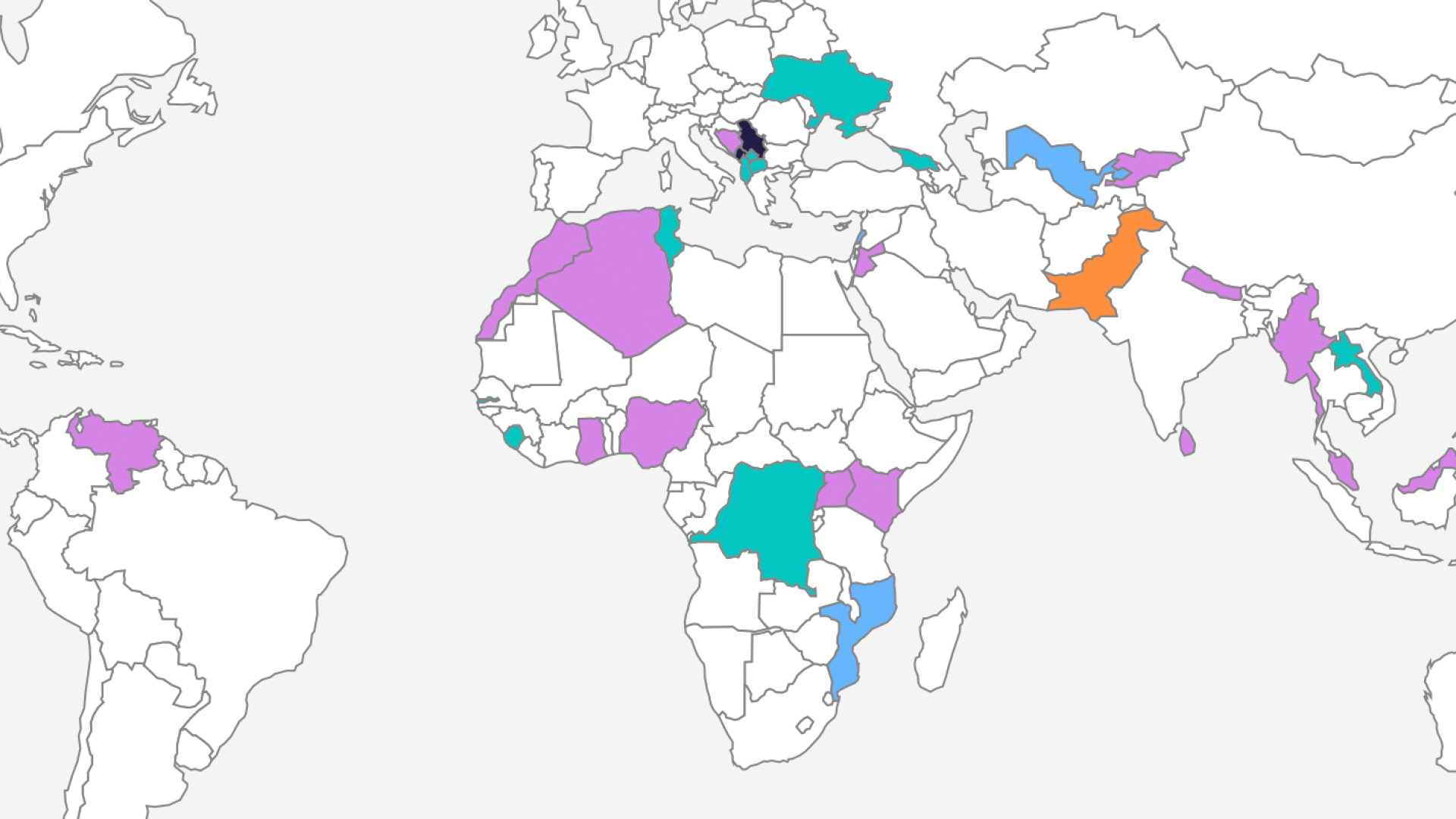WFD launches new Pandemic Democracy Tracker

As democracies navigate their way through the COVID-19 crisis, there are many potential pitfalls. One particularly treacherous path is tempting – the road that leads to authoritarianism. Autocratic governments have seized the opportunity to peddle propaganda claiming that their political systems have produced the most effective responses to the pandemic. Among the European public, there are growing doubts about the capacity of democratic governments to deliver for their citizens. Even democratic success stories are facing backlash for the restrictive means by which they have effectively contained the virus.
Commentators are warning that for democracy, the COVID-19 virus may be terminal.
At Westminster Foundation for Democracy (WFD), we believe that the journey to overcome COVID-19 should not be made without upholding human rights. Strong democratic processes to scrutinise and to approve emergency measures are an essential accompaniment to government efforts to limit the virus’s impact.
As Chair and Vice-Chair of WFD’s Board of Governors, Richard Graham MP and Rushanara Ali MP, recently put it in The Times (£), “Democratic constraints matter because when emergency measures become permanent, corruption and abuse of the law soon go unpunished, civil rights are unprotected and security forces become a threat.”
Indeed, effective responses to COVID-19 have been built on relationships of trust between citizens and the state, and this trust cannot be meaningfully sustained without inclusive and rules-based governance that is rooted in people’s participation and consent.
We have developed our Pandemic Democracy Tracker to monitor the quality of democratic responses to COVID-19 across 30-plus countries in which we work. The tracker captures information about each democracy’s response, including their approach to many of the issues outlined above: Has parliament had oversight of emergency measures? Are those measures time-limited? Do they infringe on civil liberties?
But in democracies, inclusion is just as important as accountability. Our tracker goes further – it notes whether socio-economic policies around COVID-19 have been gender-responsive, too.
The data which is displayed on the tracker is collected by WFD’s country teams, who provide updates at regular intervals, using a standardised survey designed by WFD. The results are aggregated and scored, with higher scores indicating a more democratic response.
The focus is on examining the nature of the response to COVID-19, rather than general characteristics of the political system in normal circumstances. For example, countries receive a higher score if their emergency legislation in response to COVID-19 has an expiry date and a lower score if it is in place for an unlimited amount of time. The scores also account for the inclusivity of the response by scoring countries higher if their pandemic-related socio-economic policies are gender-responsive. Details of the scoring system can be found here.
We can already see that, in more of than half of the countries monitored, emergency powers have no expiry date. On the other hand, 15 parliaments are meeting virtually, whilst 10 have gone into unscheduled recess or have been dissolved.
Information that is available to researchers, the media, members of parliament and citizens is essential for accountability and effective scrutiny, as well as a better understanding of how we can keep democracy strong and healthy. To this end, we hope you find the tracker useful. You can also follow updates from the tracker at @WFD_Tracker on Twitter, and get involved in the conversation using the hashtag #PanDemTracker.
We also hope that you will scrutinise us – and let us know when you think our information is wrong or out of date. You can challenge the information displayed on this website, as well as suggest updates by submitting an online form.
The tracker marks a shift in how WFD makes its data accessible as a public service. On top of making our data available, we are also publishing original expert analysis which we hope will help tracker users interpret the data they see.
Maintaining good democratic health is important, and not just for inclusive, accountable political systems. Democracy and good public health are connected, too. But democracy, like good health, is not inevitable. It needs constant nurturing.